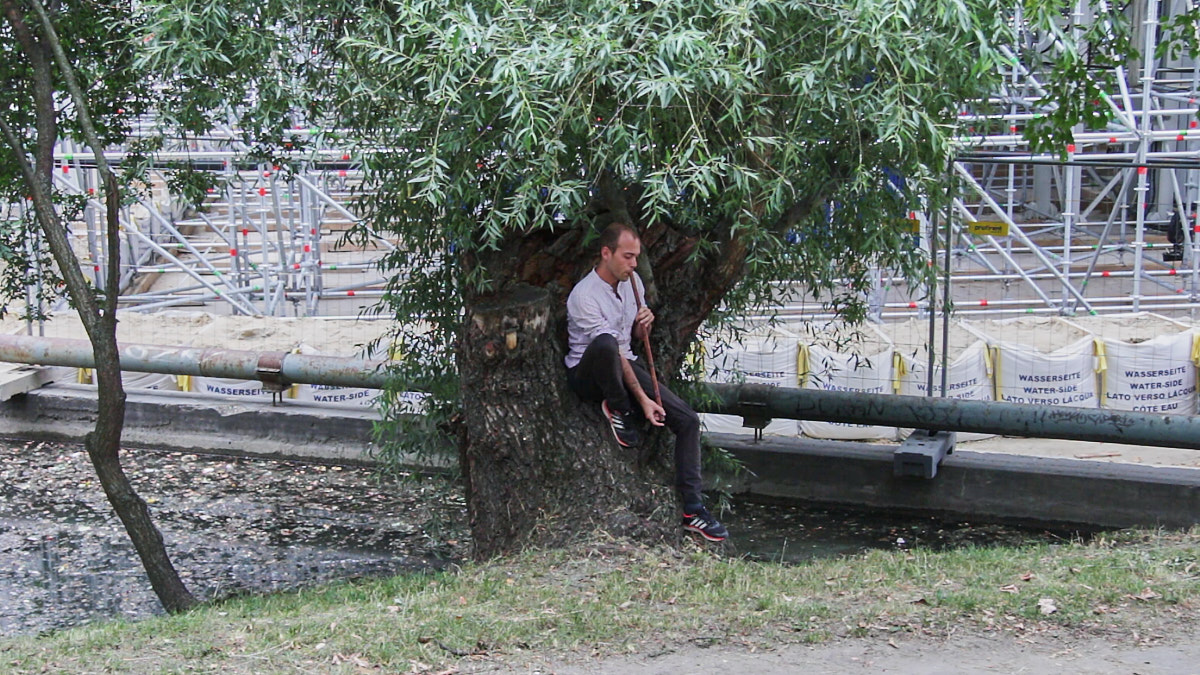Japanese knotweed overtone flute and pipe, osage orange moldovan recorder, black locust kaval, ailanthus alphorn, three videos
With: Kitti Gosztola
Singer: Gergő Pojendán
English translation: Anna Bentley
Hungarian and Romanian translation: Alexandru Polgár
Additional footages: Sári Ember
Special thanks to Viola Biró, István Pávai, and Kata Riskó researchers of the Institute for Musicology of the Hungarian Academy of Sciences.
— How to Be Together, Art Encounters, Timișoara, Romania, 2021
— Listing VI, Kisterem Gallery, Budapest, 2017
— #Bartók, CAFe Budapest, Ludwig Museum Budapest, 2016
In his 1942 essay Race Purity in Music, Béla Bartók refers to melodies that cross linguistic barriers on account of emigration, resettlement, or invasion as “emigrant melodies.” He believed these intercultural exchanges resulted the diversity of Central European folk music. In their new cultural environment, foreign melodies adapt to the characteristics of the local language and thus become an integral part of the specific local culture.
Peasants made their musical instruments from materials they found in their environment, which were the easiest to carve and which provided the required sound. Based on this, today many plants native elsewhere – in North America, Southeast Asia – provide suitable raw material for folk instruments. Found everywhere, the ailanthus tree’s spongy wood is perfect for carving alphorn; hollow as reed, the Japanese knotweed is suitable for making overtone flutes; the sound of the recorder carved from the black locust surpasses the ones made from fruit trees.
Since Bartók’s project of collecting folk music, not only has folk music in the traditional sense changed, but also the environment once accommodating the peasantry that played authentic folk music. Plantations of non-native plants have been created for their economic benefits – the Ailanthus is food for the silkworm, the exceptionally hard Osage orange tree is perfect for tools and as railway sleeper, and the black locust is excellent for the reforestation of eradicated forests on salinized lands, or have been introduced as ornamental plants like the Japanese knotweed.
Folk songs in the video:
Elindultam szép hazámból
(I set off from my lovely homeland collected by Béla Bartók, Békésgyula, 1906)
Inimă, dî ce nu mori?
(Heart, why don’t you die, oh collected by Bálint Sárosi, Méhkerék / Micherechi, 1973)
Mioriţa
(The Little Lamb collected by Gheorghe Prichici and Adrian Fochi, Tulnici, 1956)
Szép fehér pekulár
(Handsome shepherd boy collected by Pál Péter Domokos, Klézse / Cleja, 1957)



